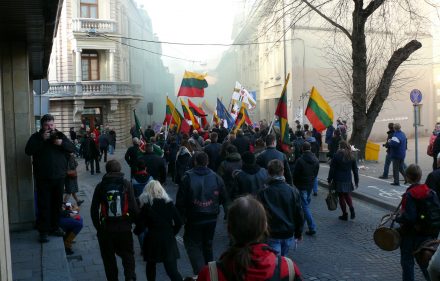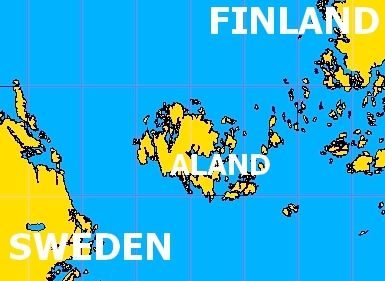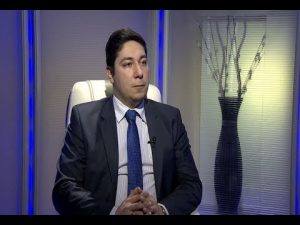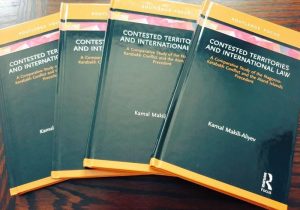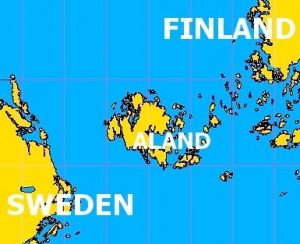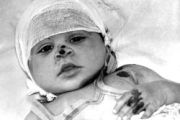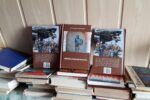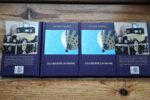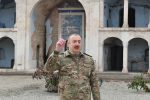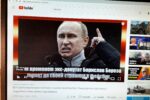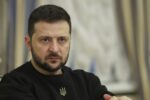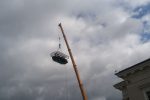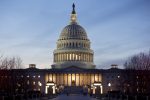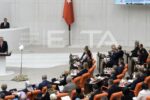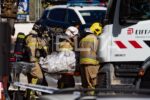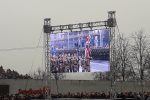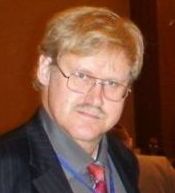
Tomorrow is February 16th. It is a very important holiday for Lithuania. During these days, in our press, on television, on radio, there are many comments about February 16, 1918. This day is given to history, to politics.
However, while welcoming the increased interest in history, I must admit that Lithuania is unfortunately not one of the countries where historical topics are examined very objectively, honestly. There are many silenced moments and biased approaches. There are even nagged historians in Lithuania, because instead of being silent, they draw unpleasant, uncomfortable facts in public.
So let me also say a word for the reflection on February 16th. Unfortunately, not very happy. It is common to have fun and be proud during the holidays. But why should I be overwhelmed with joy, if not so much of it is around?
We still do not have monographs on dushanskis, raslans and zimanas
(Jewish collaborators of the Soviet regime participating in the killing and deportation of Lithuanians – T.P. )
First of all, it is striking how Lithuania deals with topics that are unpleasant for the Jewish community. It simply does not. It is a taboo. Deadly silence. Everyone who mentions them is attacked, criticized and eventually falls. I agree, we must know the crimes of our bad guys. I do not dispute – all mistakes must be registered, described in detail. Lithuanian sins must not be hidden. However, pushing aside our historians or publicists interested in history of the country simply because they raise issues that are inconvenient not only for Lithuanians, but also for Jews, is that democratic?
Historian Valdas Rakutis did not say anything reprehensible, urging to look at the history of the Second World War from both sides. The only minor sin was that the call should not have been made on the Holocaust Day. But a democracy must tolerate such „sin.” After all, in such cases, the most important thing is whether this is true: if we stubbornly condemn people who were at least somewhat related with fascist Germany, let us also register those who cooperated with the Kremlin regime.
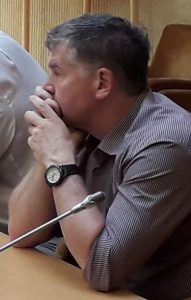
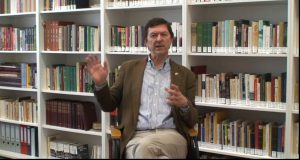
We are urged to honestly analyze our peoples’ biographies, to look through the magnifying glass at the slightest suspicion. Just why has the other side so far neither prepared nor has plans to prepare scientific monographs on, say, the crimes of the dushanskis, raslans, zimanas? What should we do if we record every one of our real or perceived sins and others hide their own sins? If that side relies on the KGB archives and accept them as true facts, why can’t we analyze what was written in the Lithuanian Archives during the years of German occupation?
Historian Arūnas Gumuliauskas proposed to adopt a resolution declaring that the Lithuanian nation is not the nation of Jewish killers. There was a real need for such a resolution. But he was silenced, claiming that no one blames the Lithuanian nation for this sin attributable to the fascist Germany. Is it true that no one reproaches, no one rebukes, no one condemns?
Vidmantas Valiušaitis, a publicist interested in history, has been expelled from the Lithuanian Center for Genocide and Resistance, in his books, articles and video comments presented the obvious facts about how our heroes Jonas Noreika and Kazys Škirpa are unjustifiably accused of sympathizing with fascist Germany.
What will fall next? Will it be Dalius Stancikas, an LCGR employee, who wrote the much-needed book „Hammering the history of Lithuania”? After all, he is not in a hurry to hang the labels of Jewish killers on Lithuanian characters of that time…
Belarusian accents
Another topic is Belarusian. The leader of the Belarusian opposition, Sviatlana Tsikhanouskaya, is both praised and supported in our country. This is the right posture. It is not possible to beat the protesters in this way, as Alexander Lukashenka is doing. Lithuania must lend a helping hand to Belarusian protesters.
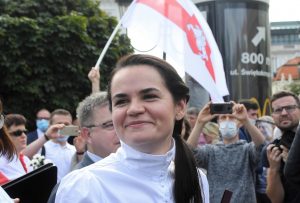
But I have not heard that any of our journalists and politicians have publicly and openly asked that lady about the Grand Duchy of Lithuania and the Astravec nuclear power plant. I am very interested to know what this lady thinks about the origin of the Grand Duchy of Lithuania and whether she agrees that it is necessary to shut down the Astravec nuclear power plant as soon as possible? And if she even said that the origin of the Grand Duchy of Lithuania was Lithuanian, even if she confirmed that „the Astravec NPP must be stopped because it threatens Vilnius”, is our intelligence certain that this lady does not speak the opposite during private conversations?
What do we know about Alexei Navalny?
The story of Alexei Navalny is similar. Of course, he is a brave man. Navalny’s documentaries, which tell how Russian intelligence poisoned him with „Novichok”, or that film about Vladimir Putin’s fabulous palace, are noteworthy and respectful.
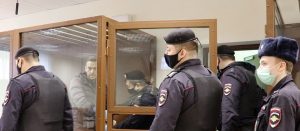
But my first concern is to find out what Navalny said when Russia invaded Georgia, Ukraine. If he really claimed that it would be worthwhile to throw those Georgians with cruise missiles, if he claimed this sincerely, without being forced by anyone, then there is a high probability that this man will want to throw cruise missiles on Lithuania. I hope that the Member of the Seimas Laurynas Kasčiūnas, who recently participated in the rally in support of A. Navalny in front of the Russian Embassy, knows the answer to this question?
Curbing corruption in Russia is an important issue. But it is no less important to know that the heart of the tireless anti-corruption fighter is not trapped in the icebergs of imperial thinking.
When will the activities of ASALA be evaluated?
Here is an excerpt from the text of Rayat Ibrahim, a senior fellow at the Gateston Institute (author of the book “The Sword and the Scythian: Fourteen Centuries between Islam and the West”), which prophesies that „as many as 340 million Christians in the world are being persecuted”. It says that in the present world, 13 Christians are killed, 5 Christians are abducted and 12 churches are attacked every day for their religious beliefs.
We need to know these sad statistics. But aren’t you missing a comparative analysis? Why is there no figure for how many people are killed every day in the world just because they are Muslims? I would then compare the anti-Muslim facts with the attacks on Christians and see the real situation. Now it seems that the blowing is only one way – only Muslims are hurting Christians, and the Christians have never hurt Muslims anywhere and are not going to hurt them.
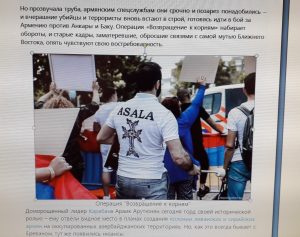
But this is not true. Let us remember the Crusades, the occupation of Algeria, the war against Afghanistan, the bombings of Iraq, the attacks on Muslims in the Balkans, the equated Chechen capital, Grozny.
Finally, let’s remember how many Turkish diplomats residing in Vienna, Madrid, Paris, Berlin, and Copenhagen were killed by the Armenian terrorist organizations ASALA, Dasnakcutiun, Gncak in the European capitals from 1975 to 2002? There were 235 terror acts, 70 murder and 41 assault cases. 524 people were killed during these attacks, including 105 hostages.
Let’s recall how in the second half of 2020, the Armenian armed forces fired on the Azerbaijani cities of Bard, Gianja and Terter (69 civilian Azerbaijanis were killed and another 322 were injured in these attacks).
Are these figures included in reports of religious intolerance? Do we know that the infamous ASALA, who persecuted Turkish diplomats a few decades ago, sent a scary letter to a Turkish diplomat residing in Beirut (Lebanon) on January 1, 2019, and burned a Turkish flag near the embassy building (Turkish flags were burned in other countries as well, near the Turkish missions)? Do we know that on January 20, 2021, ASALA issued a statement that members of the organization are not barred from committing terror against the citizens of Azerbaijan and Turkey, who took back Nagorny Karabakh in the end of 2020?
Try to publish these facts in the Lithuanian media, and you will see that it is not so simple. It is allowed to criticize Muslims – as much as the heart desires, but not to blame Christians! Although, for example, the international community recognizes that Nagorny Karabakh belongs to Azerbaijan. However, Lithuania did not congratulate Azerbaijan, which recovered the lands lost decades ago due to the Armenian aggression, including those seven neighboring districts that had nothing to do with Nagorny Karabakh. Also it did not congratulate Turkey, which helped the Azerbaijanis to regain what belongs to Azerbaijan according to the international law. After all, this is an important, significant event.
What is hidden in the Armenian archives?
Find the text of Radio Free Europe / Radio Liberty (RFE / RL) published by LRT – a conversation between Harry Tamraziano, Director of the RL Armenian Service, and Thom de Waalu, a Caucasus expert at “Carnegie Europe”. There is not the slightest hint that, under international law, Nagorny Karabakh is an indisputable territory of Azerbaijan. When this fact is silenced, all other discussions are meaningless. At least that’s what it seems to me.
Remember how the Lithuanian Academy of Sciences did not allow historians invited by the Turkish Embassy to present their position on the tragic 1915s, and opened doors for guests invited by the Armenian Embassy? That is why we do not know that the US Ambassador Henri Morgentau, who resided in Istanbul in 1913-1916, for a total of 780 days, wrote a report extremely unfavorable to the Turks, entitled „The Tragedy of the Armenian People”, grossly distorted the facts. During his residence in the Ottoman Empire, he did not leave Istanbul in order to visit any problematic region – he limited himself to leisure, recreational trips around the then Ottoman Empire. Therefore, his report cannot be regarded as objective.
But there is another reason why his reports should not be considered objective. The translator, an adviser, considered his right-hand was Arshag Simavonian, helped him write this report. And his secretary was Acopus Andonian. What matters is not that both the adviser and the secretary were Armenians. It is important that both these Armenians hated the Turks and everything Turkish. They were therefore grossly biased.
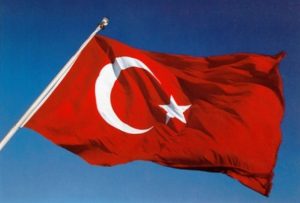
And what about Johannes Lepsius’ work „Germany and Armenia 1914 – 1918. Collection of Diplomatic Mail”? Is it worth to trust it blindly? This person is known to have been blindly pro-Armenian and pathologically hated the Turks. He did not include in his mail, for example, reports from Lois Mozel, a special Caesar agent, and Felix Gus, officer, informing that Armenian armed formations befriended the enemy of the Ottoman Empire, Tsarist Russia, receiving weapons from Russian Tsar, and coordinating their attacks against the Turks with the Russians.
There are a lot of such tendentious defaults and distortions. But Lithuania does not want to know them. Avoiding even mentioning that in 2005 it was Turkey that proposed Armenia to convene a joint commission of historians to investigate all the causes and consequences of the 1915 tragedy. Official Yerevan – categorically refused. Apparently, there are fears that a lot of unpleasant facts will come to the surface.
Donald Trump and censorship
So Lithuania is still a long way from a real democracy. There are many forbidden, ignored, and silent topics.
The only consolation is that not only Lithuania is in difficulty. On the Delfi.lt portal, I read an interesting article by Vidas Rachlevičius „The Big Break: the End of the American Dream”. I will admit: I never liked Donald Trump. Especially when he pandered Vladimir Putin in Helsinki. Trump’s accusations of rigged elections were also unconvincing. I also remember an interview published on the gordonua.com portal with Yuri Schwec, a former KGB employee who had left for America a long time ago, who claimed that the Russian special services had been eyeing Trump for a long time.

And still, Trump’s accounts on social networks should not be blocked. Let us argue with him, criticize him, unmask him, but let us not restrict his right to freedom of expression.
I agree with V. Rachlevičius, who believes that blocking D. Trump’s accounts is an anti-democratic step. I agree with V. Rachlevičius that real democracy and human rights start with freedom of speech.
Freedom of speech is inviolable and unquestionable in any form. Freedom of speech – without any „provided”, „if”, „but”.
Freedom of speech either exists or does not exist.
2021.02.15; 00:30

